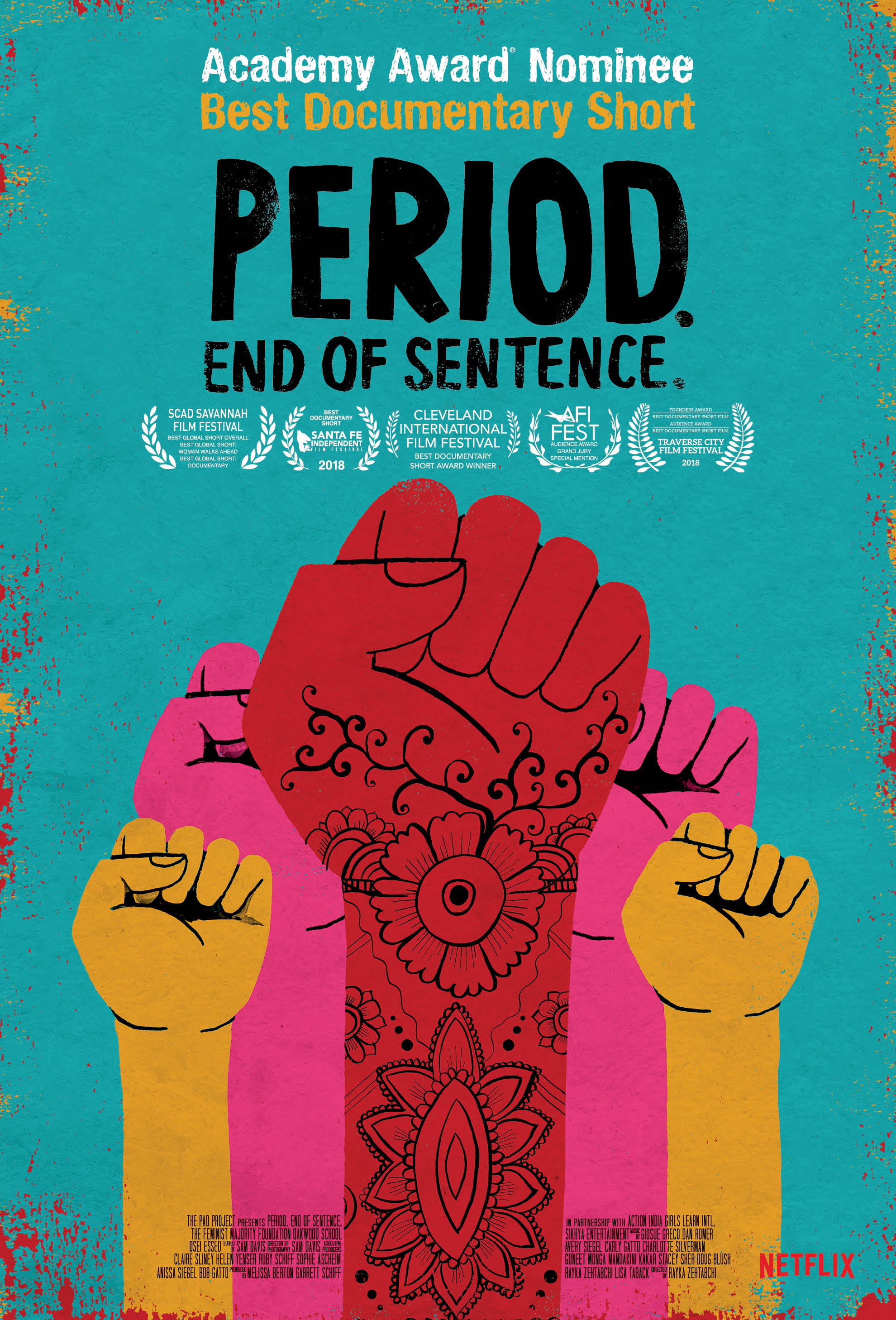When Sneha began working at a sanitary pad-manufacturing unit in her village on the outskirts of New Delhi, she told her father she was making children’s diapers. “It was embarrassing,” the 23-year-old tells TIME. “If I can’t talk to my friends about this, then how can I tell my father?”
“This” is something of a euphemism. It’s one of several non-descriptive terms used by many in India when talking about menstruation, sanitary products and female health, evoking a stigma that colors discussions of the issue. It is that stigma that Sneha is working to change in Period. End of Sentence., a documentary short nominated for an Academy Award this year.
Directed by Rayka Zehtabchi and set in central India’s Hapur district, the film chronicles the installation and impact of a machine used to make sanitary pads in rural India. The film is the result of a collaboration between a group of California students and their teacher, an Indian production house and a global network of activists.
The machine is the brainchild of Arunachalam Muruganantham, better known as “Pad Man.” When Muruganantham learned that his wife used cheap, dirty cloths instead of expensive sanitary products he decided to do something about it: He developed a simple mechanism that allows women to make affordable sanitary pads.
His innovation is proving to be life changing for many women across India, a country that has a complicated view of menstruation. Cultural and religious taboos have led menstruation to be viewed as something that renders a woman dirty during her time of the month. One recent example is the case of Sabarimala temple, where activists have fought to strike down a ban on women of menstruating age because they were perceived as impure.
Read more: They Entered a Forbidden Hindu Temple in the Name of Women’s Rights in India. Now They’re in Hiding
The stigma has created an environment that stymies female growth. While on their period, many women are prohibited from daily activities like visiting temples and cooking. Even in major cities, the discomfort around menstruation is evident in the fact that stores wrap sanitary napkins in newspaper or brown paper bags for customers.
In rural areas, those who cannot buy or afford sanitary products resort to using rags and ashes; girls often skip school because there are no bathrooms to change in. According to one report published in 2015, 23% of girls drop out of school when they reach puberty; another found that 40% of schools don’t have separate female toilets.
Statistics like these are what spurred Melissa Berton, a teacher at the Oakwood School in Los Angeles, into action. In 2012, Berton learned about period-related hardships while attending a session hosted by the U.N. Commission on the Status of Women. “I was dumbstruck by my own ignorance,” she tells TIME, “and I realized that I can’t be the only one who doesn’t know about this.”

Berton enlisted a few members from her school’s chapter of Girls Learn International (GLI), a student-driven program that seeks to advance women’s empowerment and development, to help remedy the issue. They decided to install one of Muruganantham’s machines in India. The village of Kathikhera, where Sneha is from, was identified as an ideal testing ground.
But they wanted to do more than install a machine — they wanted to build a conversation around the issue, and that’s where the documentary came in. As student Claire Sliney said: “We thought it would be more effective to show the issue rather than us talking about it.”
And as the documentary shows, mindsets change over time. Women who earlier blushed when asked about menstruation became comfortable talking about it by the end. “No one considers it to be a shameful topic now, there’s no negativity associated with it,” Sneha said.
In the two years since the machine was set up in Kathikhera, the women have taken their product to about 40 villages. A second machine was recently installed in the nearby village of Sudhna, assisted by The Pad Project, a non-profit founded by Berton.
There’s still a lot of work to be done. But as the documentary shows, change is possible, especially when women take matters into their own hands. As Muruganantham says in the film: “The strongest creature created by God in the world is not the lion, not the elephant, not the tiger… the girl.”
More Must-Reads from TIME
- Why Trump’s Message Worked on Latino Men
- What Trump’s Win Could Mean for Housing
- The 100 Must-Read Books of 2024
- Sleep Doctors Share the 1 Tip That’s Changed Their Lives
- Column: Let’s Bring Back Romance
- What It’s Like to Have Long COVID As a Kid
- FX’s Say Nothing Is the Must-Watch Political Thriller of 2024
- Merle Bombardieri Is Helping People Make the Baby Decision
Write to Kamakshi Ayyar at kamakshi.ayyar@time.com